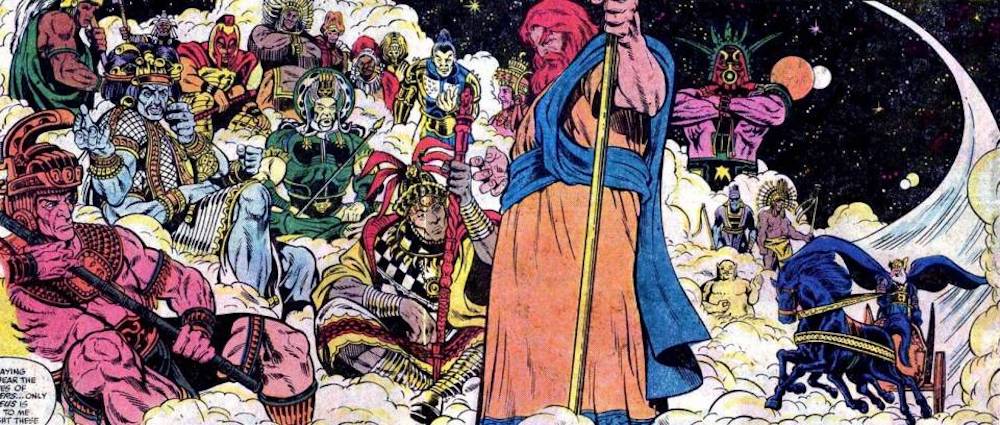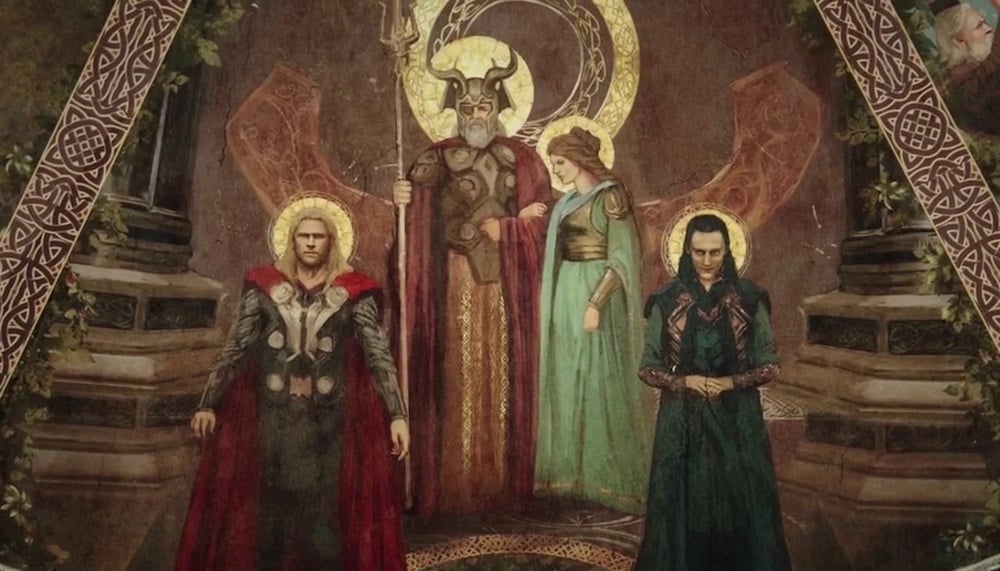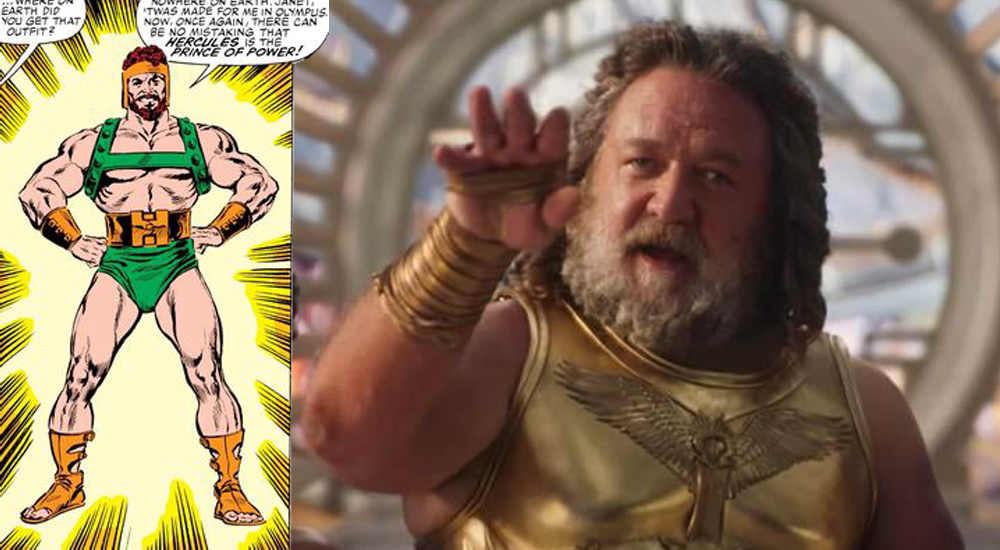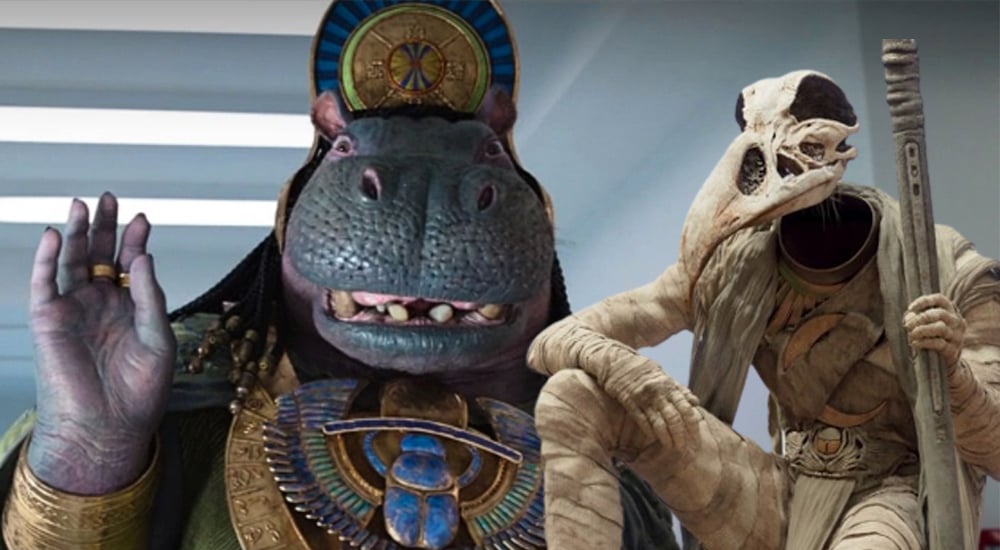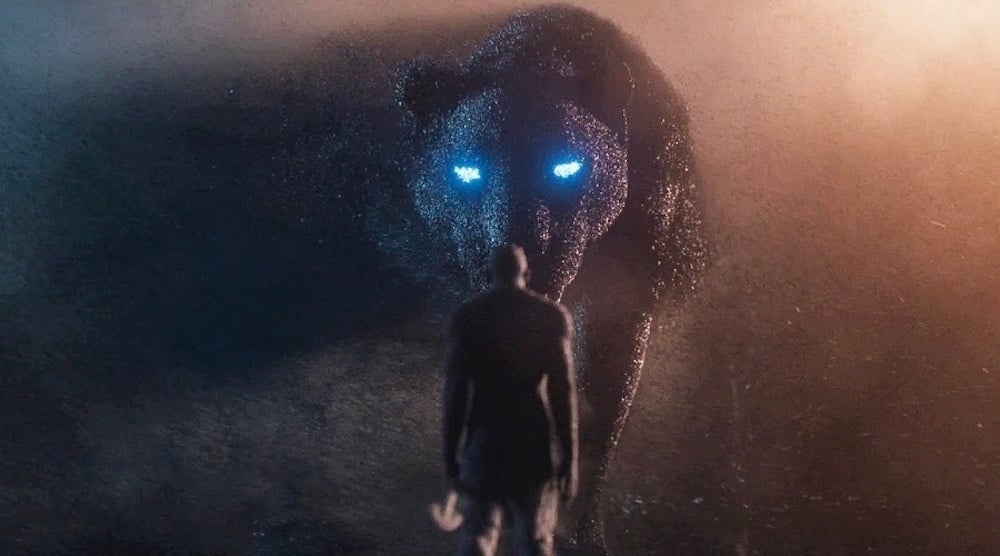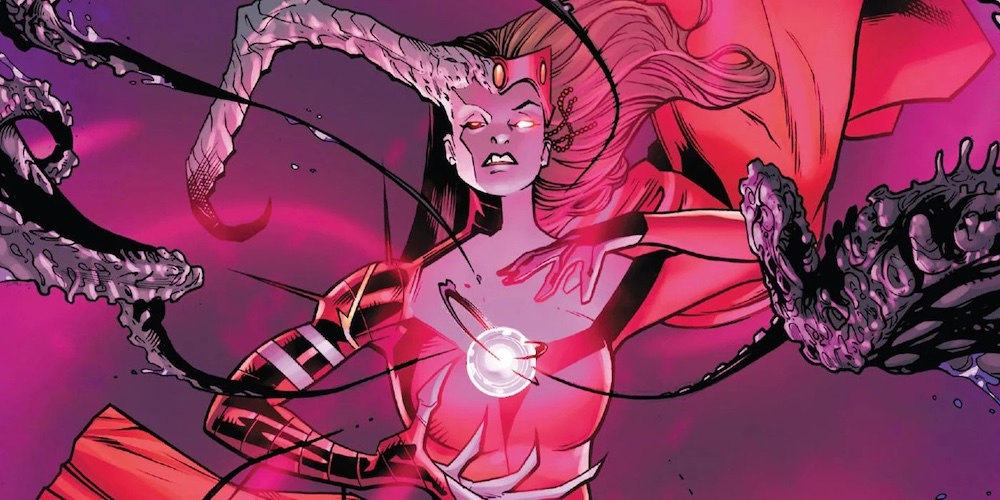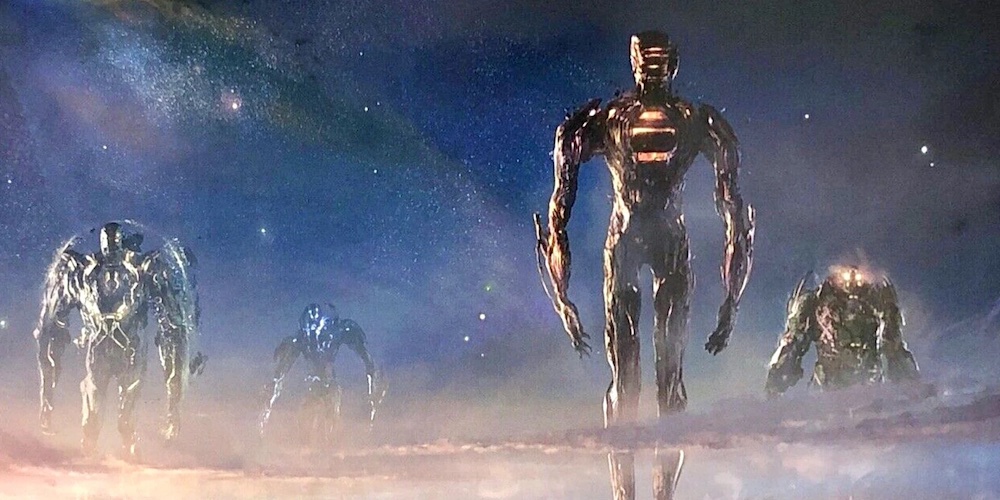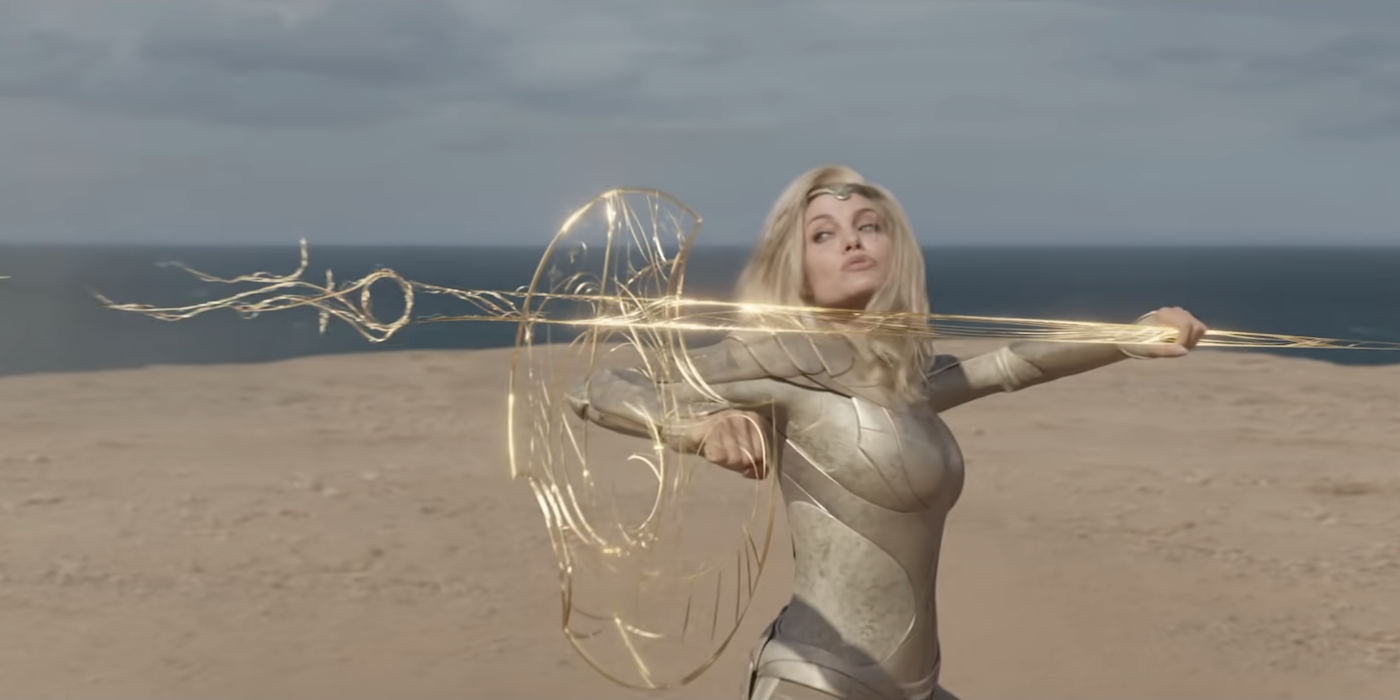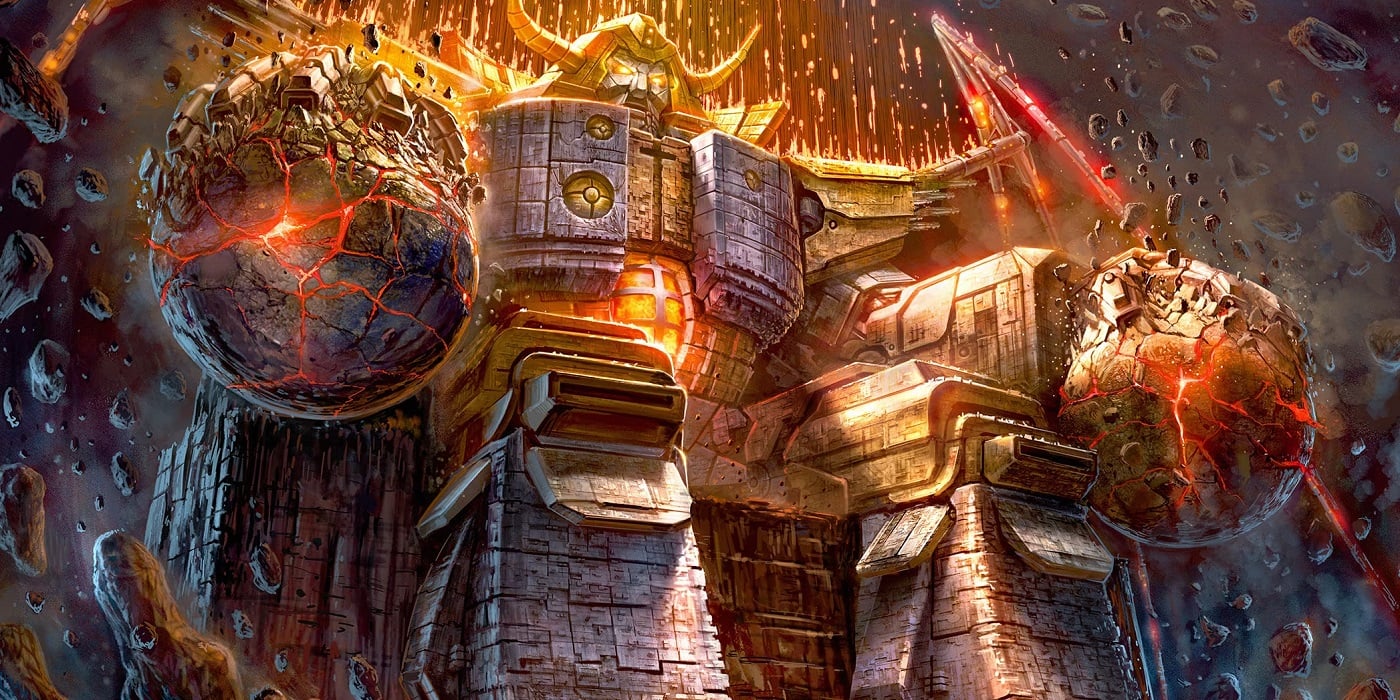Marvel Explained: The Quick Guide to Gods in the MCU
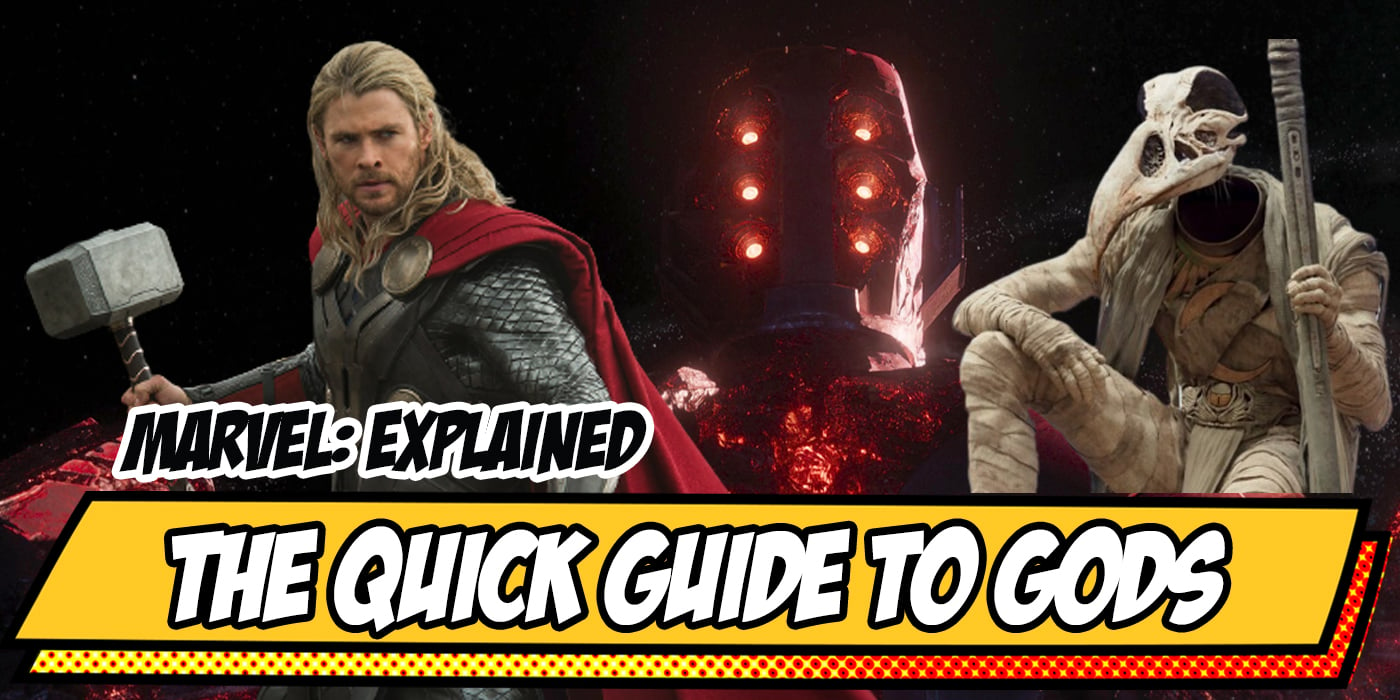
Good gods, there are so many gods in the Marvel comics (and a few in the MCU.) Here’s every pantheon we’ve seen on screen so far.
Marvel really has all the gods. We’ve got Norse gods, Egyptian gods, and now Greek gods—and they’re all playing around on the same planet. Which gods have we seen in the MCU so far? How are their powers and origins different? And what qualifies a character as a god anyway?
What Constitutes Marvel’s Gods?
In the Marvel universe, it’s not wholly known exactly where humans came from—just like real life in our universe, it was the culmination of many different factors. There’s a lot happening here: it starts with Celestial vomit, it’s nurtured by the Elder Goddess Gaea, and it allegedly culminated in the ancient alien Xorrians spawning humans, shape-shifting Skrulls, and Kree.
But what does it mean to be a god? In the Marvel comics, the gods as mortals know them on Earth were essentially created by human myth. As humans believed, so the creation stories became true. Did some gods create humans just so they could create their own gods to worship? Sure.
At any rate, the line between “gods” and “cosmic beings” is a blurry one. Characters we’ve seen in the MCU like The Watcher and He Who Remains certainly have a lot of god-like qualities, but no one directly worships them. So for now, we’re not going to consider them technical gods. Stay tuned, though. That can always change.
Asgardians
The Asgardian gods are the first deities we meet in the MCU. They’re Marvel’s adaptation of the Norse gods. Odin the Allfather was seen as the god of wisdom and the ruler of the Nine Realms. His wife, Frigga, whose goddess area of expertise isn’t specifically identified, was educated in the ways of magic. Their son Thor is the God of Thunder, while their second son Loki is commonly known to be a trickster god thanks to his adopted mother’s magical training.
These Marvel gods are pretty straightforward adaptations of mythology. Odin does acknowledge that they do eventually die, and then he eventually dies, so immortality isn’t a given. And as Asgard’s people leave their homeland to establish a domain on Earth, the concept of godhood starts to get a little more wibbly-wobbly. Still, now that Jane is the new God of Thunder, it looks like the Asgardians’ god-like powers are still alive and kickin’.
Olympians
Thanks to Thor: Love & Thunder, we’ve now seen Russel Crowe’s Zeus in all his golden glory. Unlike the Asgardians, whose existence is predated by their human-told legends, the Marvel comics’ Greek gods are grandchildren of the Elder Goddess Gaea. Will that translate to the MCU? Probably not. Those are some mighty heavy hairs to split.
While this trailer is big on the Zeus cameo, I’m more interested to find out if Hercules will make an appearance in the film. He and Thor have a mostly-healthy rivalry in the comics, and as the Odinson grows wiser in the ways of the world, it’d be nice to have another prideful himbo god running around the MCU.
The Gods of Egypt
Thanks to Marvel’s series Moon Knight, we’ve been officially introduced to the Egyptian Marvel gods. Unlike the Norse and Greek gods, who each just wield their own powers, the Egyptian gods designate avatars to do their earthly bidding.
These avatars gain access to the powers of the god they represent, and the gods are able to speak through their avatars directly. These gods seem to have abandoned humanity and remain on Earth in an observational capacity. Still, the choice to speak and act through human avatars seems to contradict this ideal a little bit.
The workings and motivations of the Egyptian gods are still a bit of a mystery to us. It’s unclear if we’ll get more stories featuring Moon Knight, the Scarlet Scarab, and the Egyptian Marvel gods. But here’s hoping!
The Marvel Gods of Wakanda
There’s a lot of crossover between the Egyptian gods and the deities of Wakanda. After all, Bast, the Panther Goddess from whom T’Challa gains his Black Panther powers, is traditionally an Egyptian figure. In the comics, the Egyptian gods who decided to stick it out alongside humanity later gained followers and new life in Wakanda.
These gods, Egyptian and other African deities alike, are known as the Orishas. While Bast is the god who holds the most sway over the Black Panther story, Wakandans have also been known to worship Sekhmet the Lion God, Sobek the Crocodile God, and Ghekre the Ape God.
We don’t know a whole lot about Bast apart from her role in T’Challa’s superhero origin. But there are rumors she’ll make an appearance in Love & Thunder, too.
The Marvel Elder Gods
The magical corners of the MCU feature so many potential godly name-drops that it’s impossible to tell who’s a god and who just created a powerful magical item to be stored in the Sanctum Sanctorum. Still, after Multiverse of Madness, it bears mentioning that Marvel has its own Lovecraftian-style Elder Gods.
The Elder Gods were created by the Demiurge, a sentient life-form with reality-shaping abilities. Eventually, all of the Elder Gods started eating each other and devolved into demons except Oshtur and Gaea. Oshtur would leave this plain for a very long time, but upon her return would give birth to Agamotto, the Stone Age’s Sorcerer Supreme. She was also a co-creator of the Book of Vishanti, the massively powerful book of “good” magic in the MCU.
We also met the Vishanti’s opposite volume, the Darkhold. It’s the book of dark chaos magic Scarlet Witch uses to chase America Chavez all across the multiverse. But who created the Darkhold? The Elder God Chthon. Though none of these Elder Gods have been formally introduced into the MCU, we might learn more about Chthon and his no-no book in the upcoming Agatha Harkness series.
The Celestials & the Eternals
Remember that blurry line between cosmic beings and gods? Well, the blurriest part of that line runs right through the center of The Eternals. We learn that the Celestials created life across the universe in Guardians of the Galaxy. And while the inhabitants of Earth don’t worship them as creators, it’s possible that there’s other life in the universe that does. I mean, if it creates life and you can buy a plot of real estate inside one’s skull, somebody probably worships it.
As the Celestial envoys to Earth and other planets, the Eternals serve at the will of the Celestials (for a while, at least). And while the characters deny that they are actually gods, it’s acknowledged that their deeds inspired the visages of certain gods throughout history.
So follow me here: Thena inspired the stories of the Greek goddess Athena. Humans’ belief in Athena, along with the other Marvel gods of Greece, made her real. And we know we’re meeting Zeus in this summer’s Thor: Love & Thunder. Does that mean that Thena and Athena could meet in the MCU? In the comics, the similarities create an alliance between the Greek gods and the Eternals. Did that happen in the MCU, too?
The One Above All?
Honestly, my eyes are starting to get a little crossed. Maybe Steve Rogers is correct and we’ll actually hear mention of the One Above All. I’d love for the MCU to reveal that the god is Jack Kirby. But since Marvel bought the rights to Stan Lee’s image, the MCU might introduce The Man Above All instead.
Which Marvel gods would you like to see make their way into the MCU? Personally, I’m going all out—give me Knull or give me death.

